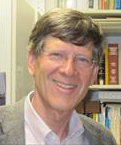Associate Professor
Translational neuro-ophthalmologist
Dr. Marc Levin received his M.D. and Ph.D. degrees from UCSF. His graduate research in Biophysics focused on aquaporin (AQP) water channel and cystic fibrosis transmembrane channel (CFTR) physiology, especially in the cornea. Dr. Levin completed his residency in Ophthalmology plus a fellowship in Neuro-ophthalmology, both at the Scheie Eye Institute at the University of Pennsylvania in Philadelphia. He was then elected the prestigious Society of Heed Fellows at the end of his training. He then returned to UCSF as an Assistant Professor and clinician-scientist in the Department of Ophthalmology. His primary research was in understanding roles for pathogenic autoantibodies against AQP4 in rodent models of neuromyelitis optica (NMO) optic neuritis. He also discovered and developed small-molecule CFTR activators as potential ocular surface therapies, and has been involved in advancing them to human trials. From 2016 to 2023, he practiced clinical neuro-ophthalmology, at the Palo Alto Medical Foundation. He serves on multiple editorial boards in his field, and most recently as site and national principal investigator on multiple clinical studies of idebenone for the treatment of Leber’s Hereditary Optic Neuropathy. In 2023, he returned to the UCSF Department of Ophthalmology as an Associate Professor. Through renewed collaborations, he looks forward to developing new research directions, with the goal of making meaningful scientific contributions to improve his patients’ visual outcomes.
To Learn More:
https://profiles.ucsf.edu/marc.levin
Research Areas:
Amblyopia Strabismus or Eye Movement Disorders, Neuro-Ophthalmology, Visual System Function in Adults
Learn more about UCSF Ophthalmology faculty research.







